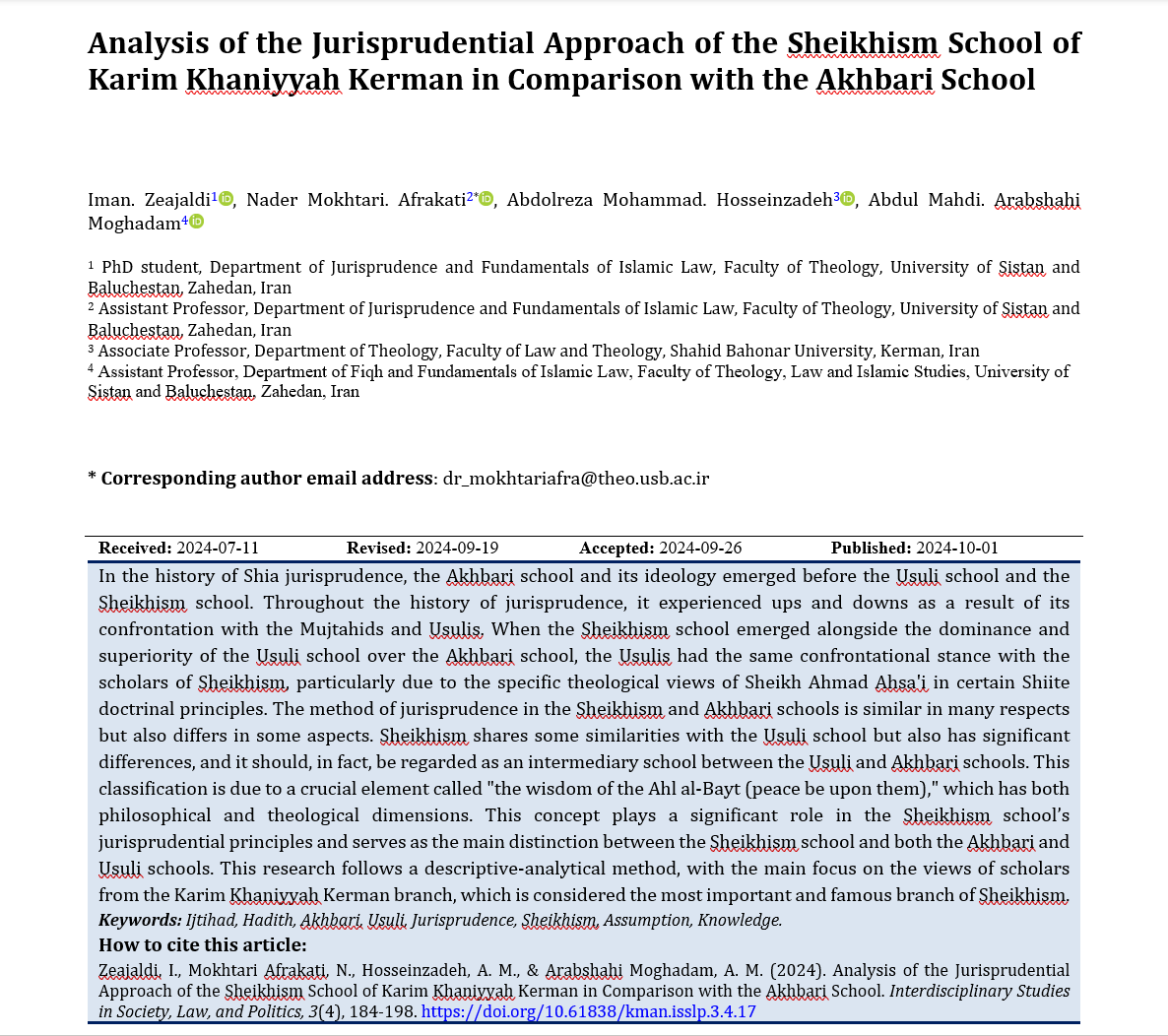Analysis of the Jurisprudential Approach of the Sheikhism School of Karim Khaniyyah Kerman in Comparison with the Akhbari School
Keywords:
Ijtihad, Hadith, Akhbari, Usuli, Sheikhism, Assumption, Knowledge, JurisprudenceAbstract
In the history of Shia jurisprudence, the Akhbari school and its ideology emerged before the Usuli school and the Sheikhism school. Throughout the history of jurisprudence, it experienced ups and downs as a result of its confrontation with the Mujtahids and Usulis. When the Sheikhism school emerged alongside the dominance and superiority of the Usuli school over the Akhbari school, the Usulis had the same confrontational stance with the scholars of Sheikhism, particularly due to the specific theological views of Sheikh Ahmad Ahsa'i in certain Shiite doctrinal principles. The method of jurisprudence in the Sheikhism and Akhbari schools is similar in many respects but also differs in some aspects. Sheikhism shares some similarities with the Usuli school but also has significant differences, and it should, in fact, be regarded as an intermediary school between the Usuli and Akhbari schools. This classification is due to a crucial element called "the wisdom of the Ahl al-Bayt (peace be upon them)," which has both philosophical and theological dimensions. This concept plays a significant role in the Sheikhism school’s jurisprudential principles and serves as the main distinction between the Sheikhism school and both the Akhbari and Usuli schools. This research follows a descriptive-analytical method, with the main focus on the views of scholars from the Karim Khaniyyah Kerman branch, which is considered the most important and famous branch of Sheikhism.
Downloads






